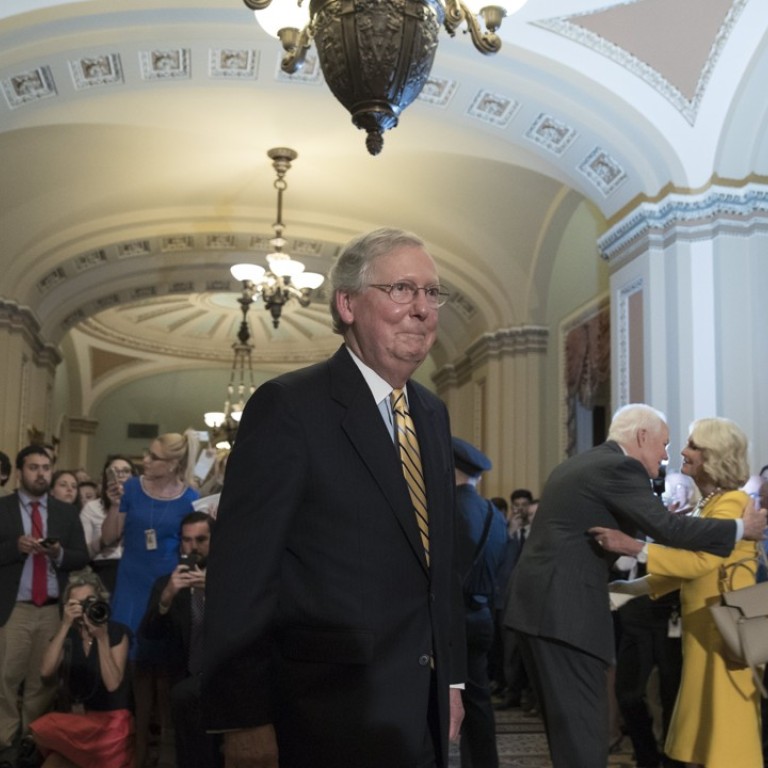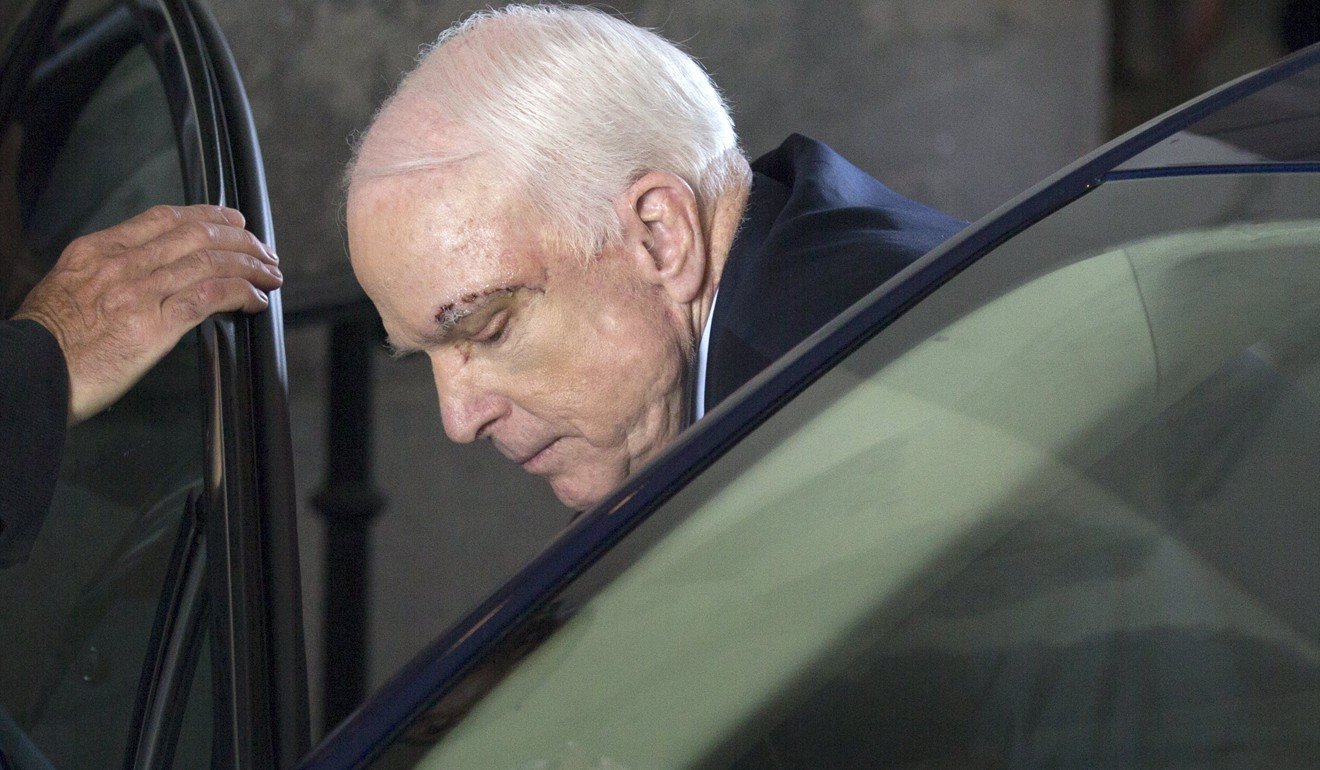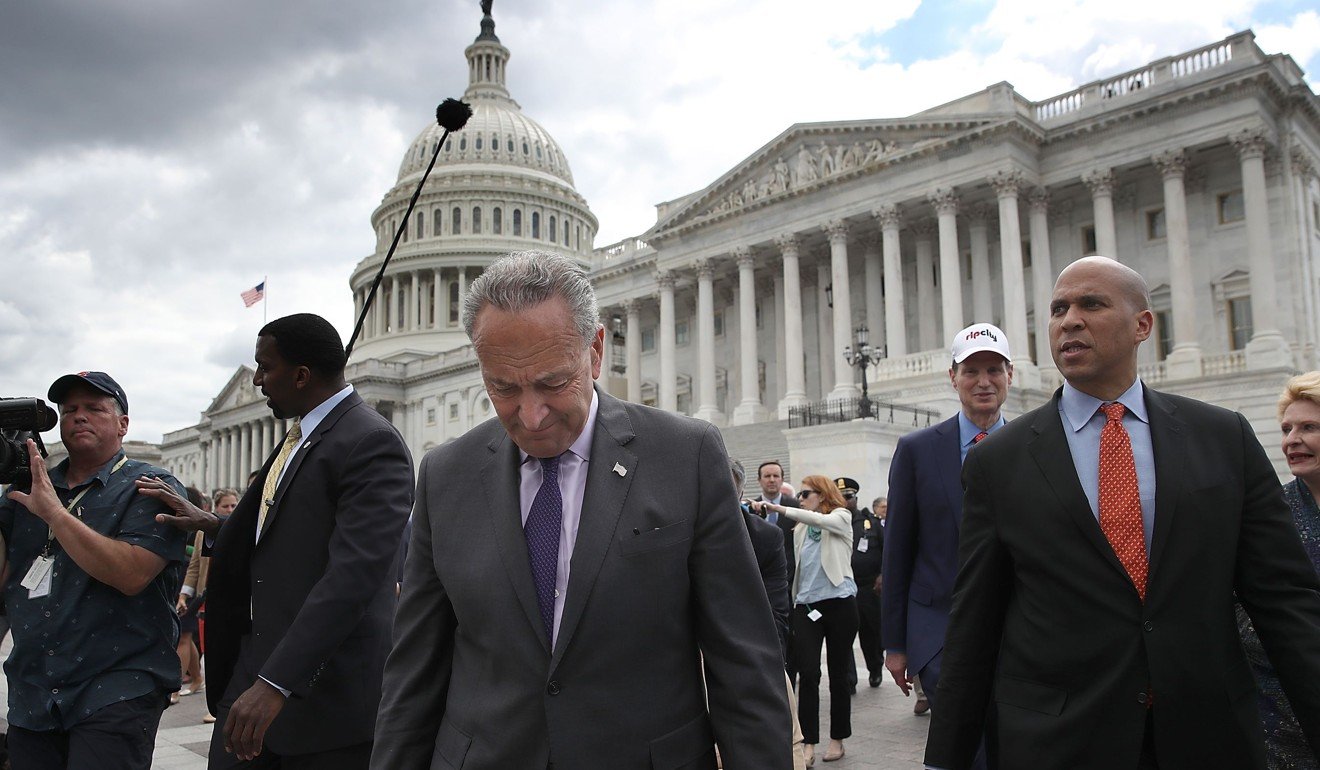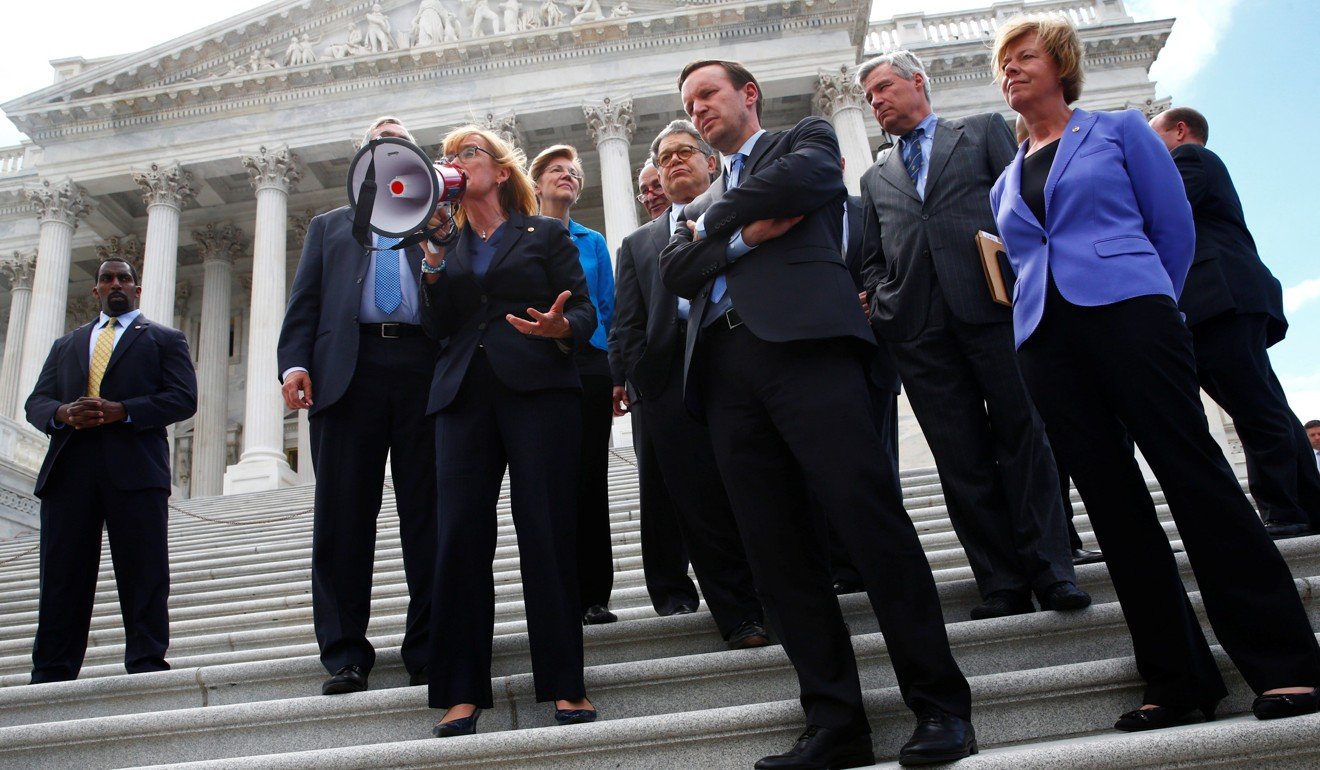
Obamacare repeal moves forward by narrowest margin, as cancer-stricken McCain casts crucial Senate vote
Vice-President Mike Pence casts tie-break vote after 50-50 deadlock - but health-care repeal still faces major difficulties
US Senate Republicans narrowly agreed on Tuesday to open debate on a bill to end Obamacare, but the party’s seven-year effort to roll back Democratic President Barack Obama’s signature health care law still faces significant hurdles.
The Senate deadlocked 50-50 on moving forward with the health care debate, forcing Vice President Mike Pence to cast the tie-breaking vote.
Senator John McCain, who was diagnosed this month with brain cancer and has been recovering from surgery at home in Arizona, made a dramatic return to the US Capitol to cast a crucial vote in favour of proceeding.
The outcome was a huge relief for President Donald Trump, who had pushed his fellow Republicans hard in recent days to live up to the party’s campaign promises to repeal the 2010 Affordable Care Act, commonly known as Obamacare. Minutes after the vote, Trump called it “a big step.”

But the narrow victory on a simple procedural matter raised questions about whether Republicans can muster the votes necessary to pass any of various approaches to repeal. Moderates are worried repeal will cost low-income Americans their insurance and conservatives are angry the proposed bills do not go far enough to gut Obamacare.
McCain received an ovation from his fellow senators when he entered the chamber to cast a vote to open debate. After the vote, he decried growing partisanship in the Senate and urged members to learn how “to trust each other again.”
He said he would not vote for the health care bill “as it is today,” and added: “I know many of you will have to see the bill changed substantially to support it.”
Senators Susan Collins and Lisa Murkowski were the only Republicans to oppose the measure, and with Republicans controlling the Senate by a 52-48 majority, those were the only votes the party leadership could afford to lose. Democrats were united in opposition to the motion to proceed.
Republican Senator Ron Johnson, who cast the last and deciding vote to open debate, engaged in a heated discussion with Senate Majority Leader Mitch McConnell before casting his vote and ending the suspense.
A loss on Tuesday could have been a death blow for Republican efforts to repeal Obamacare, as well as casting doubt on Trump’s prospects to achieve any of his other top legislative agenda items, including tax reform.
“We have a duty to act,” McConnell told senators before the vote, reminding Republicans they had promised to repeal Obamacare in four straight elections. “We can’t let this moment slip by.”

As the vote opened, more than two dozen protesters in the Senate chamber chanted “kill the bill” before they were removed.
The Senate will now launch what McConnell has promised will be a robust debate on health care that could include a variety of amendments.
Senators said several approaches have been discussed, including a straight repeal of Obamacare with no replacement plan, or repealing and replacing the law while also overhauling Medicaid, the federal health insurance programme for the poor and disabled.
Senate Republicans also could consider a shortened version of repeal, called a “skinny repeal,” which would end the mandates in Obamacare on individuals and employers to obtain or provide health insurance, and a medical device tax, a Senate aide and a lobbyist said.

“Some of us want clean repeal, some of us want the Senate leadership bill, they’re both going to get a vote early on and I think that’s a fair way to do it,” Republican Senator Rand Paul said. “If either one of them fails and another one succeeds, maybe we can find something in between that actually succeeds.”
Republican Senator Bob Corker said the goal was to gain enough votes to get a bill through the Senate and send it to the House of Representatives, which passed its own bill to replace Obamacare in May, for negotiations. “Everybody understands this is just a first step,” he said.
Senate Democratic Leader Chuck Schumer told Republicans they should not vote to open debate. “No one knows the plan that is being cooked up in the Republican leader’s office,” he said on the Senate floor.
He charged that McConnell’s intention was to get the Senate to pass “anything” so that they can get to a conference, where a bill would be refashioned to suit both chambers. “Do not fall for the ruse,” he said.

